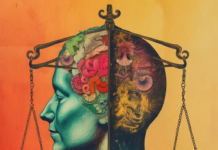Despite increasing attention to addressing social determinants of health, the US public health community rarely addresses the political realities that drive poor health outcomes across the country. A new article explores this dynamic, exposing how the United States Master of Public Health (MPH) programs, embedded within the United States capitalist system, are shaped by the interests of the wealthy.
Stella Medvedyuk and Dennis Raphael, both from York University, have evaluated the limitations of the top-ranked MPH program in the United States, John Hopkins’ Bloomberg School of Public Health. This program is often considered a model of a social justice approach to health.
Through a critical analysis of Hopkins’ International Declaration of Health Rights, the authors argue that it fails to consider the economic and political structures that shape health, and they warn that real change is unlikely unless the threat of capitalism is acknowledged.
“It is noteworthy that in a country where regressive politics and a skewed economic system creates some of the highest levels of social and income inequalities among wealthy nations, politics and economics are left out of health messaging from one of the country’s best known public health schools,” they write.
“There is a social contradiction of the School espousing its commitment to promoting health equity while embedded within the capitalist structures and processes that threaten health. And the most obvious aspect of this contradiction is it is being endowed and named after a capitalist billionaire who has denounced any attempts at redistribution in the service of public health.”
This critical analysis resonates with concerns over how corporate interests and economic systems shape health narratives and policies, potentially overshadowing more holistic and equitable approaches to public health and mental well-being. The article challenges public health education to confront the capitalist structures it often operates within, a call that aligns with efforts to address the societal influences on health and mental healthcare practices.
















Thank you so much for reporting on this
Report comment
There’s a book I have read by David Smail, an English psychologist who worked for 40 years within the NHS, before, during and after the Thatcher years.
The Origins of Unhappiness: A New Understanding of Personal Distress
https://www.goodreads.com/book/show/2396475
His basic thesis in this book is summed up as follows:
“What caused people distress was not so much their own mistakes, inadequacies and illnesses as the powers and influences that bore down upon them from the world beyond their skin.”
“Suffering is a form of knowledge. It tells us what is wrong with our world.”
“The social havoc wreaked by unfettered economic greed comes to be interiorised as the personal weakness and irresponsibility of those principally affected.”
“To bring about change you need access to power.”
He points out that any social power system that causes harm to people has a vested interest in masking the source of the causation. Establishment psychiatric and psychological departments must diagnose the distressed as the problem rather than that which causes them distress.
The Israeli states sees the Palestinian people as the problem. The colonial mindset sees the native peoples as the problem. Poverty is deliberately maintained in every hierarchy of wealth and power, (which has to practice institutionalised Wealth Extraction to maintain dominance) and the impoverished must be held responsible for their state. The homeless are to be arrested and incarcerated, for their own good. etc.
In my way of wording this I used to say to myself : “Given the kind of family and culture I was born into and everything that was done to me, it is not wonder I feel the way I do.” It was my way of trying to frame myself as a Survivor grappling with my symptoms.
Report comment
Utopia would solve many things, but it will not solve mental distress.
I am much more concerned about the Public Health community’s unwillingness to confront the spiritual nature of life (such as the subject of reincarnation) than I am of their unwillingness to deal with the problems of Capitalism. After all, Socialism and Communism and Fascism all have similar problems. They are all human systems so they have human problems.
Report comment
Are you really implying that confronting the problems of Hierarchies that are violent with a view to resolving them is a matter of an Utopian word view?
“After all, Socialism and Communism and Fascism all have similar problems. They are all human systems so they have human problems.”
If they are Human created problems, then there are human social material response solutions to them. That is not Utopian, it is practical.
I’m fine with the variations of Spiritual practice, personal faith etc, but the reality is that when avoidable harms not avoided it is a social material issue that requires focus on material (quantitative) and social (qualitative) evidence, rather than personal or group belief systems, other than assessing what kinds of beliefs lead to resistance to addressing systemic violence and the human distress that ensues.
Report comment